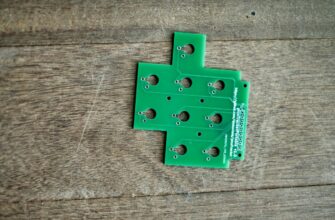Why a Secure Bitcoin Wallet Matters for Iranian Users
For cryptocurrency users in Iran, choosing the right Bitcoin wallet isn’t just about convenience—it’s a critical security and accessibility decision. Due to international sanctions and local regulations, Iranians face unique challenges: limited access to global exchanges, banking restrictions, and heightened privacy concerns. A reliable wallet ensures you maintain full control of your assets without relying on third parties. Non-custodial solutions are particularly vital, as they eliminate counterparty risk while enabling peer-to-peer transactions that bypass traditional financial barriers. With cyber threats and regulatory uncertainty, your wallet choice directly impacts your ability to securely store, send, and receive Bitcoin.
Top 5 Bitcoin Wallets for Iranian Users
After evaluating security, accessibility, and Iran-specific compatibility, these wallets stand out:
- Electrum – Lightweight desktop wallet with Tor support. Its open-source code allows verification, and advanced features like cold storage integration make it ideal for tech-savvy users.
- Wasabi Wallet – Privacy-focused desktop option with built-in CoinJoin for anonymizing transactions. Open-source and compatible with Tor, crucial for avoiding surveillance.
- Samourai Wallet – Android-exclusive mobile wallet emphasizing privacy. Features like Stealth Mode and Ricochet obfuscate transactions, with Tor routing enabled by default.
- BlueWallet – User-friendly mobile/desktop hybrid with Lightning Network support. Open-source and non-custodial, allowing fast, low-cost microtransactions.
- Exodus – Multi-asset desktop/mobile wallet with intuitive interface. While not open-source, its built-in exchange and VPN compatibility balance ease-of-use with accessibility.
Essential Features for Bitcoin Wallets in Iran
Prioritize these capabilities when selecting a wallet:
- Non-Custodial Architecture: You control private keys—no third-party can freeze funds.
- Open-Source Code: Allows community auditing for security vulnerabilities.
- Tor/VPN Compatibility: Bypasses geo-restrictions and enhances anonymity.
- Privacy Tools: CoinJoin, transaction obfuscation, and stealth addresses to prevent tracking.
- Offline Storage Options: Cold wallet support for long-term asset protection.
- Lightning Network Integration: Enables instant, low-fee transactions crucial under sanctions.
Using Bitcoin Wallets Safely in Iran
Maximize security with these practices:
- Always use a reputable VPN or Tor when accessing your wallet to mask your IP address.
- Enable multi-factor authentication (2FA) and biometric locks on mobile wallets.
- Store recovery phrases offline—never digitally. Use metal backups for fire/water resistance.
- Verify wallet downloads from official sources only to avoid malware.
- For large holdings, combine hot wallets (for daily use) with hardware wallets like Trezor for cold storage.
- Regularly update software to patch vulnerabilities.
Frequently Asked Questions (FAQ)
Q1: Are Bitcoin wallets legal in Iran?
A: Yes, owning and using non-custodial Bitcoin wallets is legal. However, trading cryptocurrencies on foreign exchanges may violate sanctions.
Q2: Can I buy Bitcoin directly within these wallets?
A: Some wallets like Exodus have built-in exchanges, but access may be restricted. Iranians typically use P2P platforms like LocalBitcoins or Hodl Hodl.
Q3: How do I bypass internet restrictions for wallet access?
A: Use Tor-enabled wallets (e.g., Wasabi, Samourai) or pair standard wallets with VPNs. Avoid public Wi-Fi for transactions.
Q4: Which wallet is best for beginners?
A: BlueWallet offers the simplest setup with solid security. Exodus is also user-friendly but lacks open-source verification.
Q5: How can I recover funds if a wallet becomes inaccessible?
A: Your 12-24 word recovery phrase is your lifeline. Store it securely offline—it can restore assets on any compatible wallet.








